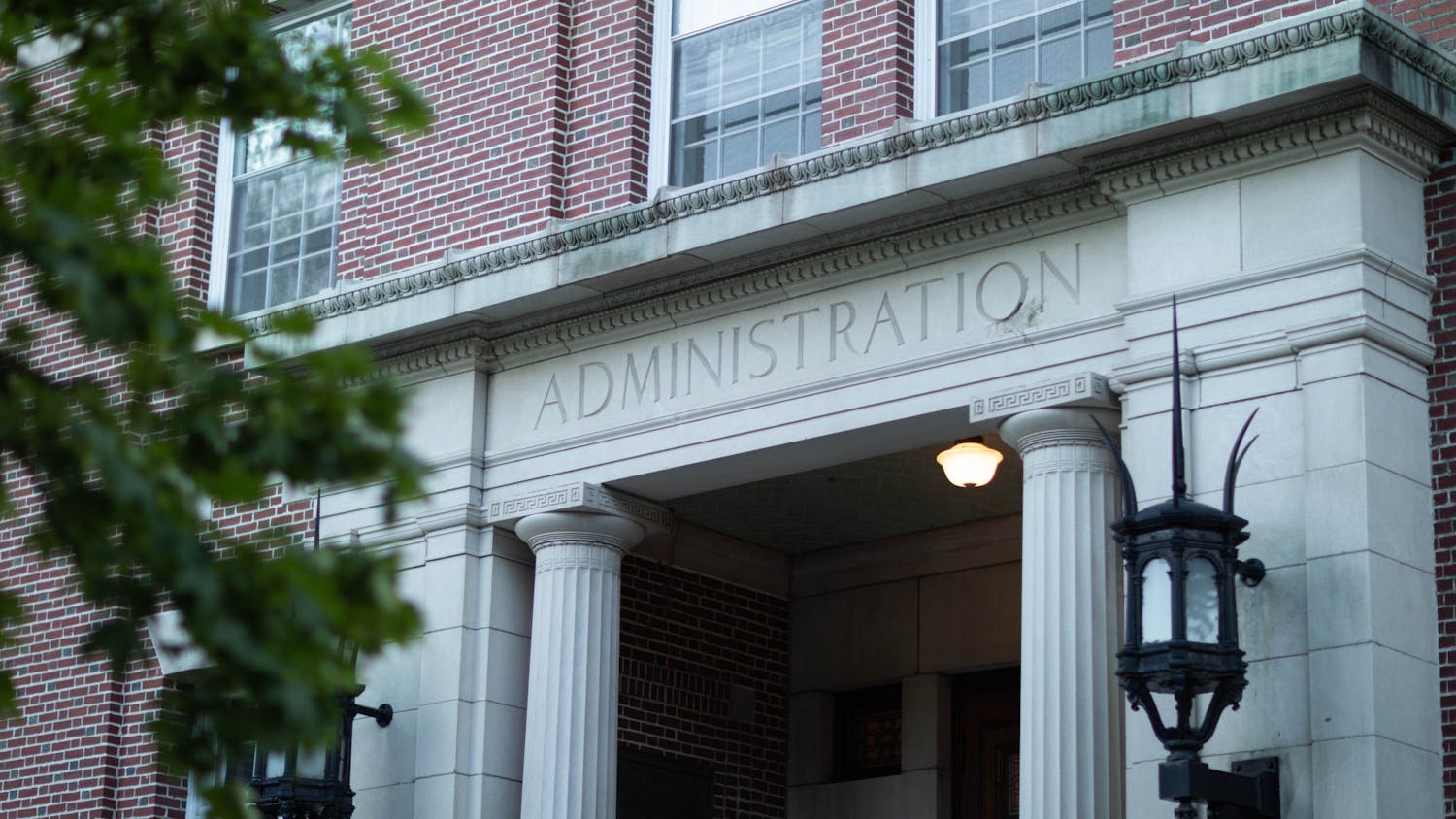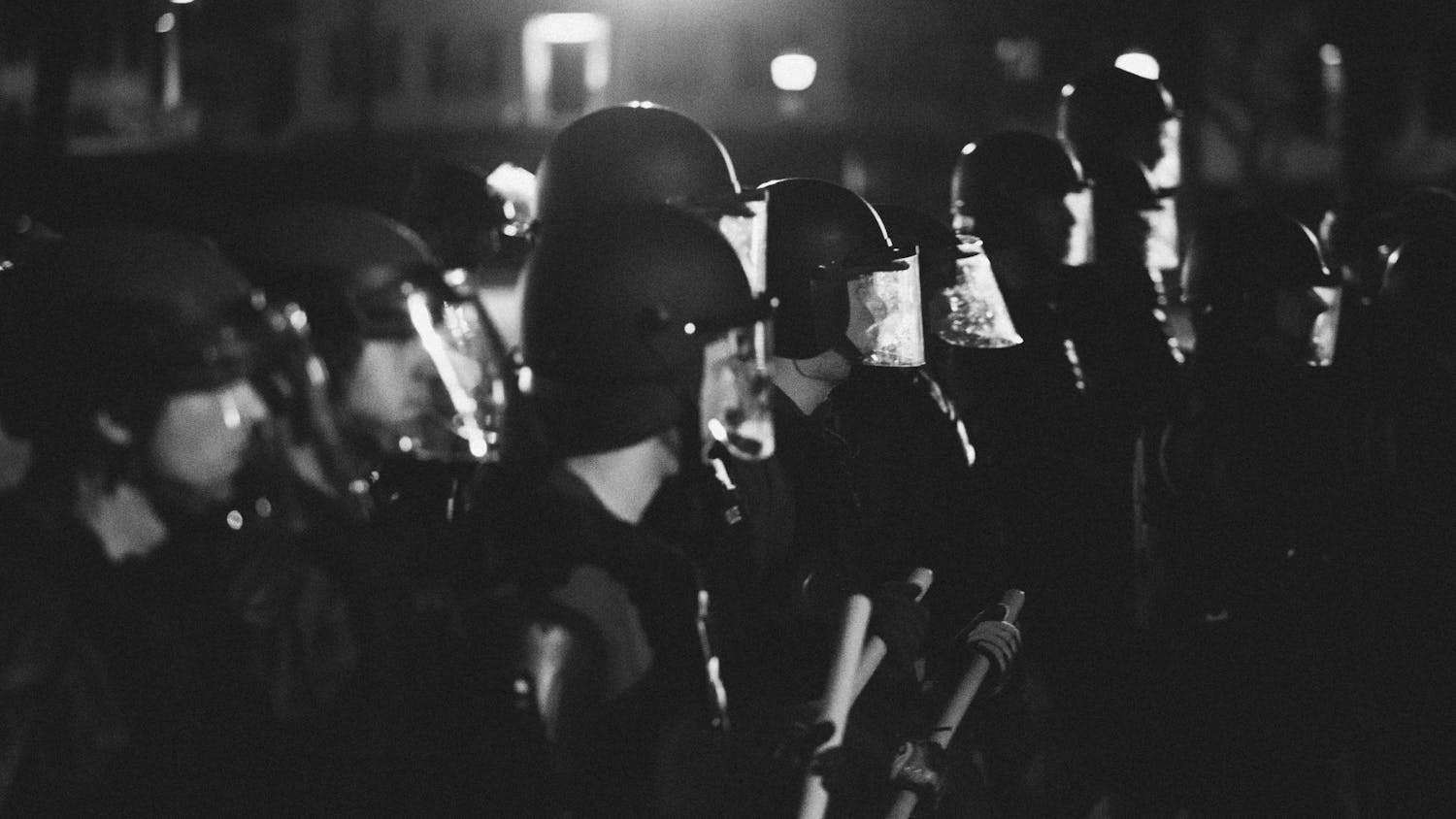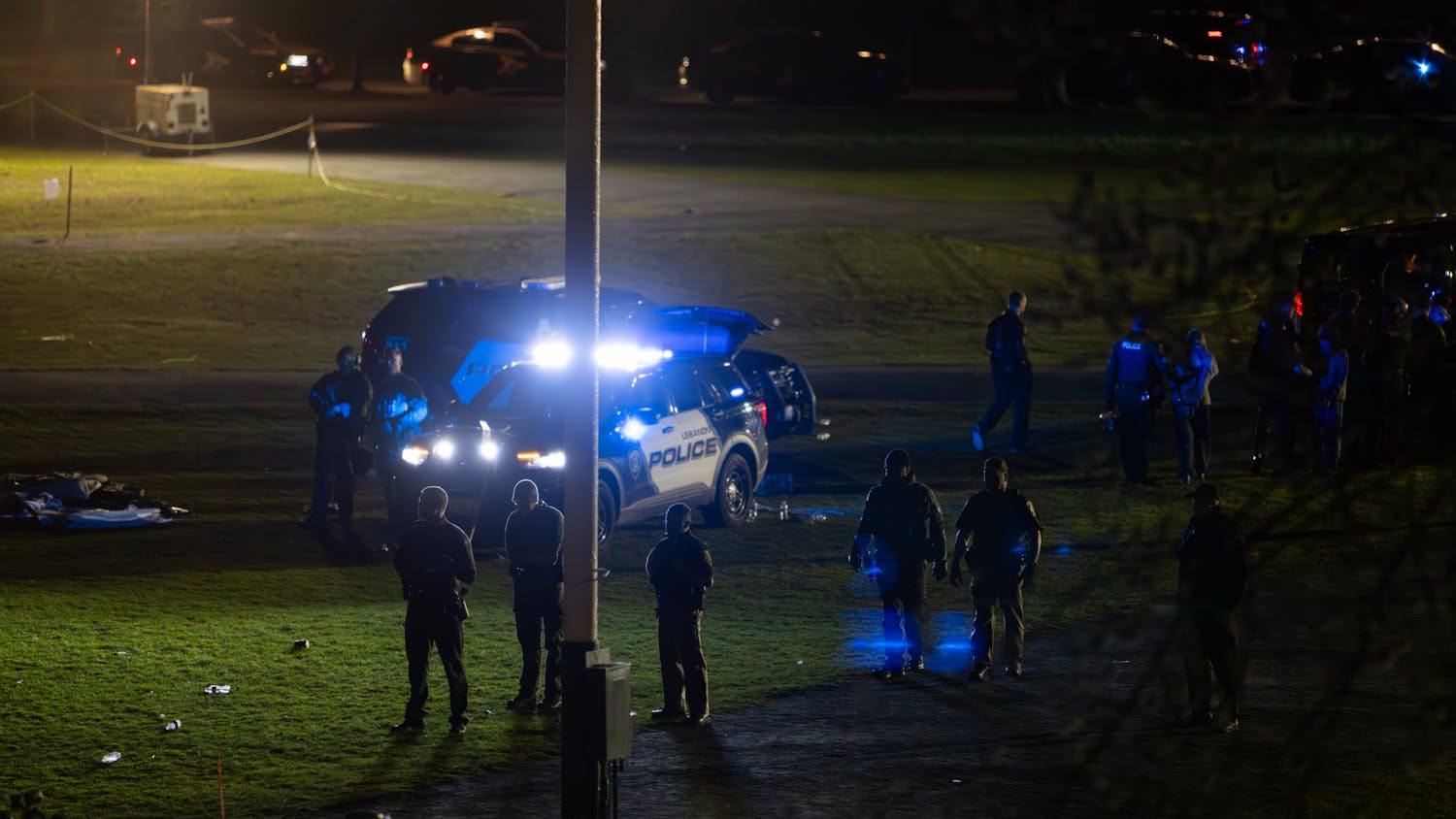Members of a resurrected Ivy Council traveled to the Dartmouth campus this weekend for the organization's spring conference, following a turbulent Winter term that nearly saw the all-Ivy forum meet its demise.
But for now, it remains to be seen if this weekend's meeting marked a significant revival of interest in the Council or perhaps the last gasp of the nine-year-old organization.
A recent string of resignations, both from the ranks of Dartmouth's own delegation and from those of other Ivies, left the Council short on experienced members and called the future of the organization into question.
Ivy Council typically meets twice per year, bringing together representatives from Ivy League student governments to exchange ideas and discuss solutions to common problems.
Although the spring conference was originally scheduled to take place at Cornell University, Ivy Council president Joshua Marcuse '04 -- selected Winter term to succeed resigned president Michael Brown of Cornell -- oversaw the move to Dartmouth to facilitate the planning of the event.
"We took a situation that was pretty awful and managed to put together one of the best conferences we've ever had," Marcuse said.
Despite the overall success of the conference, two schools were notable in their absence: Harvard, which has withheld a delegation since last spring due to disagreements with the operation of the Council, and Brown, a strong contributor in the past that was unable to organize a delegation. The latter backed out in the final days before the event.
Marcuse described Brown's absence as "very disappointing," though he said the university had no plans to abandon ties with the Council and remained committed to attending the upcoming fall conference.
Harvard has become "more of an intractable problem," Marcuse said, but he hoped the Cambridge, Mass. school would reconsider its decision to leave the Council.
A general drop in attendance from the Fall term conference, held at Brown University, was due to the lack of time given to plan the gathering, according to Marcuse, which left schools with little time to prepare their delegations.
Among the major topics discussed at the various meetings, which took place in Rockefeller Center, were academic issues, including course reviews and teacher evaluations, in addition to alcohol policy, campus police and general questions of social life on college campuses, according to delegate Julia Hildreth '05.
"We had some great discussions, and everybody seemed to take a little out of them," said Hildreth, who yesterday was chosen as Ivy Council treasurer for the next year.
A discussion led by the Cornell delegation focused on late-night activities and sponsored social programming at the Ithaca, N.Y., school, including a gambling night featuring auctioned prizes. Cornell also offered ideas on how to better publicize events, suggestions that will be brought to Dartmouth's own Student Assembly for consideration, Hildreth said.
To assist post-conference discussion, this year's meeting featured a new system of note-taking in which recorders took the minutes of each discussion group, providing a comprehensive report that will be fashioned into book form within a few weeks.
"One of the criticisms of Ivy Council was that we didn't have a product," Dartmouth's head delegate Stella Treas '05 said. "Now, for the first time, we have records, not only discussions."
Treas was chosen as next year's Ivy Council president on Sunday and will succeed Marcuse in planning future conferences.
Other discussions looked into differences between Ivy schools' alcohol policies and explored issues of undergraduate teaching and research, particularly Dartmouth's own Undergraduate Teaching Initiative.
The conference was an "outstanding success," according to Marcuse, though he said credit was due to a number of organizations, among them Student Assembly, the Programming Board, the Rockefeller Center and the Class Councils, all of which contributed funds to save the conference.
"I don't think the conference would have been possible without them," Marcuse said, adding that only the Committee on Student Organizations "was not helpful in providing funds."
Despite this term's successful conference, the future of the Ivy Council remains clouded.
Marcuse was confident that newly elected members, including Treas and Hildreth, would provide the necessary energy and enthusiasm to continue the revival of the Council.
"They're going to do an amazing job" he said. "I could not be more confident in anyone."
Still, the future of Ivy Council is uncertain. "The question is whether we can sustain this intensity that we achieved this weekend," Marcuse said. "We all will be waiting very closely to see what will happen."



